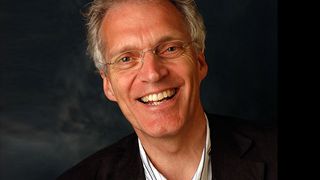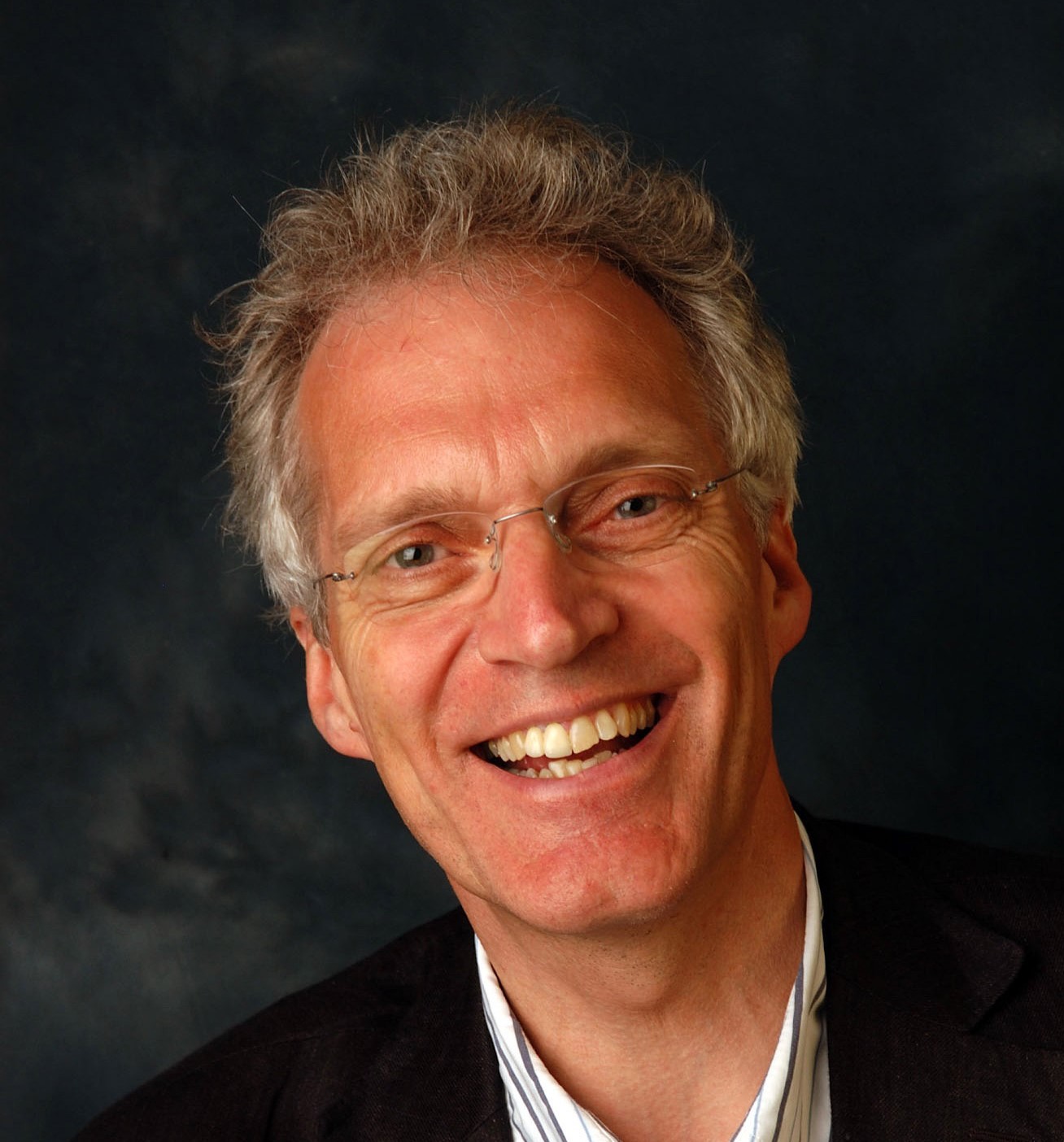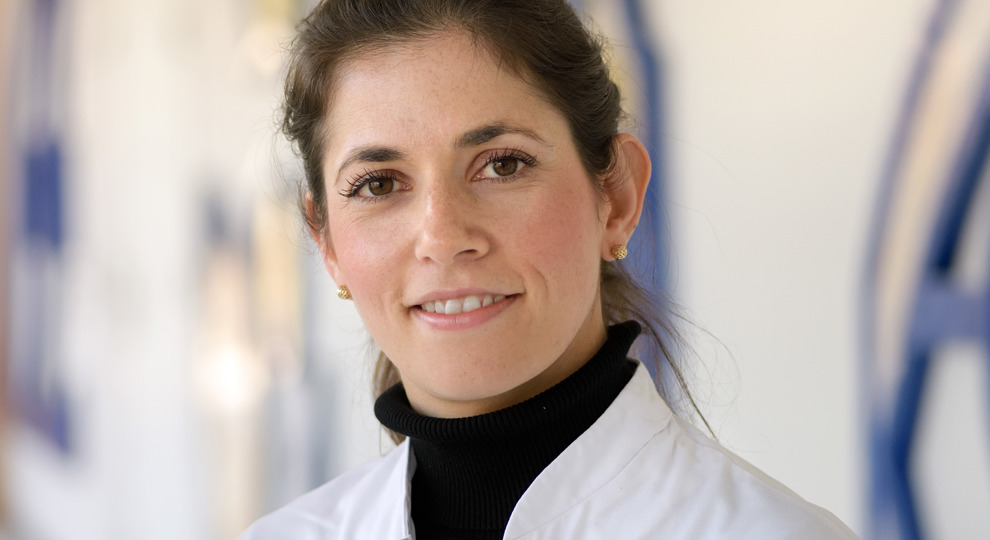
Myriam Chalabi Internist-oncoloog
Contact
Plesmanlaan 121
1066 CX Amsterdam
020 512 9111
Immuuntherapie vóór de operatie heeft effect bij darmkanker
6 apr 2020 17:01
Patiënten met darmkanker, maar nog zonder uitzaaiingen op afstand, kunnen baat hebben bij kortdurende behandeling met immuuntherapie in de wachttijd tot aan hun operatie. Tumoren kunnen aanzienlijk slinken, of verdwijnen in heel korte tijd. Het eigen afweersysteem heeft de kankercellen opgeruimd. Dit blijkt uit de NICHE-studie van het Antoni van Leeuwenhoek, een vernieuwende klinische fase II studie. Bij de patiënten met een specifiek subtype darmkanker (MSI), had 100% van de patiënten baat bij de behandeling. Bij de andere helft (type MSS) was dit 25%.
Maandag 6 april publiceerden internist-oncoloog Myriam Chalabi en collega’s deze resultaten in het tijdschrift Nature Medicine.
Neoadjuvant Immunotherapy Leads To Pathological Responses In Mmr-Proficient And Mmr-Deficient Early-Stage Colon Cancers
Abstract
PD-1 plus CTLA-4 blockade is highly effective in advanced-stage, mismatch repair (MMR)-deficient (dMMR) colorectal cancers, yet not in MMR-proficient (pMMR) tumors. We postulated a higher efficacy of neoadjuvant immunotherapy in early-stage colon cancers. In the exploratory NICHE study (ClinicalTrials.gov: NCT03026140), patients with dMMR or pMMR tumors received a single dose of ipilimumab and two doses of nivolumab before surgery, the pMMR group with or without celecoxib. The primary objective was safety and feasibility; 40 patients with 21 dMMR and 20 pMMR tumors were treated, and 3 patients received nivolumab monotherapy in the safety run-in. Treatment was well tolerated and all patients underwent radical resections without delays, meeting the primary endpoint. Of the patients who received ipilimumab + nivolumab (20 dMMR and 15 pMMR tumors), 35 were evaluable for efficacy and translational endpoints. Pathological response was observed in 20/20 (100%; 95% exact confidence interval (CI): 86–100%) dMMR tumors, with 19 major pathological responses (MPRs, ≤10% residual viable tumor) and 12 pathological complete responses. In pMMR tumors, 4/15 (27%; 95% exact CI: 8–55%) showed pathological responses, with 3 MPRs and 1 partial response. CD8+PD-1+ T cell infiltration was predictive of response in pMMR tumors. These data indicate that neoadjuvant immunotherapy may have the potential to become the standard of care for a defined group of colon cancer patients when validated in larger studies with at least 3 years of disease-free survival data.
https://www.nature.com/articles/s41591-020-0805-8
Maar toen was er hoop, in de Op1-special over kanker
Han Lips schrijft elke dag over wat hij ziet op tv. Vandaag: de kankerspecial van Op1.

Toen vorige week op wereldkankerdag – Lips had hem zelf even gemist – bekend werd dat er in 2021 meer kankerdiagnoses dan ooit waren, besloot men bij Op1: daar moeten we wat mee. Het werd een speciale uitzending over kanker vanuit het hol van de leeuw: het Antoni van Leeuwenhoek Ziekenhuis.
Wonderlijk, dacht Lips, dat een plek waarvan het zó fijn is dat-ie bestaat, tegelijk zó afschuwelijk aan kan voelen. Want iedereen die er weleens naar binnen moest, kent de deken van angst, pijn en verdriet die er meteen over je heen valt.
Voor deze gelegenheid was in de centrale hal de Op1-set opgetuigd met Charles Groenhuijsen en Carrie ten Napel als gespreksleiders. Lips hoorde het ongelooflijke verhaal van Chimène van Oosterhout, die drie keer de diagnose kanker kreeg en zodoende iets kon zeggen over hoe men vooruitgegaan is in de kwaliteit van behandeling.
Hij hoorde over het mentale aspect van kanker krijgen als twintiger of dertiger, en wat dat betekent voor levensstappen zoals kinderen krijgen of carrière maken. En daar was André van Duin, wiens partner Martin aan darmkanker overleed. Vervolgens kreeg hij het zelf ook.
Maar toen was er hoop. Eerst oncoloog Myriam Chalabi, die geweldige resultaten boekt met immuuntherapie. En tot slot onderzoeker René Bernards, die bekend werd met zijn uitspraak dat kanker binnen twintig jaar een chronische ziekte zou zijn, in plaats van een dodelijke. Die uitspraak deed hij in 2013. Of we op schema liggen, wil Groenhuijsen weten. Ja, denkt Bernards. Lang verhaal, over hyperactieve celdeling, paradoxale interventie en hoe we kankercellen helemaal naar de gallemiezen gaan helpen.
Lips wil het geloven.
Reageren? hanlips@parool.nl.
https://www.parool.nl/kunst-media/maar-toen-was-er-hoop-in-de-op1-special-over-kanker~bd3ba98b/
René Bernards

De Koninklijke Nederlandse Akademie van Wetenschappen kende René in 2013 een oeuvreprijs toe voor zijn baanbrekende onderzoek naar kanker. Met het onderzoek toonde hij aan dat iedere kankerpatiënt en zelfs iedere tumor uniek is en dat de medische wetenschap behandelingen en geneesmiddelen zal moeten afstemmen op die individuele verschillen. In 2013 stelde hij in DWDD dat de meeste vormen van kanker over enkele decennia beschouwd kunnen worden als een chronische aandoening.


De geest doet veel…. Veel van dit, indertijd goed op kaart gezet, met een brede en oneindige diepgang en energie, door Prof. Dr. RWD Gorter (MD PhD)
Medical Center Cologne
Medical Center Cologne (MCC) was founded in 2000 by Robert Gorter, MD, PhD, to apply to cancer patient his expertise, research and clinic experiences over the previous four decades. More and more patients started to name his way of treating: ‘The Gorter Model.’
The Gorter Model is an inclusive therapeutic modality of treatment of cancer patient of all sorts, patients living with chronic viral infections; such as, hepatitis B & C, HIV, and patients living with degenerative diseases. This model uses immune-supportive, nontoxic therapies.
As a cancer survivor himself, Dr. Gorter developed this program after more than forty-five years of independent clinical experience. A thorough understanding of immune function, which he received from being the medical director of the Department of AIDS Epidemiology and Bio-Statistics and as an associate clinical professor at the famous AIDS ward 86 at General Hospital in San Francisco. Read more about Robert Gorter as a physician at AIDS Clinic – Ward 86 in San Francisco, California
The innovative, nontoxic cancer therapy as part of the Gorter Model is a highly individualized approach and patients are treated according to their individual needs.
Medical Center Cologne applied the Gorter Model, since 2000. The goal of the treatment is to improve the immune system (“immune restoration”). The basic elements of the Gorter Model are the integration of the therapies and protocols in a schedule designed specifically for each patient. Traditional academic (western) medicine is being combined with new therapies, which have a sound scientific basis.
There are 3 major forms of nontoxic cancer therapy included in the Gorter Model:
- the vaccination with dendritic cells;
- various forms of hyperthermia;
- The immune restoration process, which includes Viscum album (Mistletoe), infusions with thymus and spleen peptides, vitamins and trace elements and various components which patients need.
Nobel Prize awarded for the discovery of the dendritic cells
In 2011, the Nobel Prize in Physiology and Medicine was awarded to the researchers who discovered the function of the dendritic cells and the immune system in recognizing and battling cancer cells. The Prize was divided, with one half to Bruce A. Beutler and Jules A. Hoffmann for their discoveries concerning the activation of innate immunity and the other half to Ralph M. Steinman for his discovery of the dendritic cell and its role in adaptive immunity. This award demonstrates the significance of this cell type in health and disease. Read more about how the Nobel Prize winner, Ralph Steinman, used dendritic cells to treat his own cancer.
The Gorter Model and the future of the nontoxic cancer therapy using dendritic cells vaccination and various forms of hyperthermia
Over the previous fifteen years, more than 4000 patients were treated at Medical Center Cologne with the Gorter Model. Conditions that have been successfully treated include all metastasized solid tumors, such as breast, prostate, lung, brain, liver, colon and bone cancer.
Experts expect that within a few years, dendritic cell vaccinations will become an integral part of standard treatment of various forms of cancer.
“The Gorter Model promotes especially immune, nontoxic cancer therapies, where the dendritic cells play the crucial role. I think quickly now the application and the treatment with dendritic cells as a component of the immune therapy is the future, I believe almost everybody will agree. So I think with the Gorter Model, which we started more than four decades ago, we will help also mainstream medical doctors to implement and understand the function of immune restoration and other nontoxic cancer therapies.”
Robert Gorter, MD, PhD


The Nobel Prize in Physiology or Medicine 2011
© The Nobel Foundation Photo: U. Montan
Bruce A. Beutler
Prize share: 1/4
© The Nobel Foundation Photo: U. Montan
Jules A. Hoffmann
Prize share: 1/4
Photo: The Rockefeller University
Ralph M. Steinman
Prize share: 1/2
The Nobel Prize in Physiology or Medicine 2011 was divided, one half jointly to Bruce A. Beutler and Jules A. Hoffmann “for their discoveries concerning the activation of innate immunity” and the other half to Ralph M. Steinman “for his discovery of the dendritic cell and its role in adaptive immunity.”


